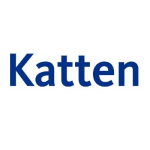In In re Odd Sox LLC, the Trademark Trial and Appeal Board (TTAB) issued a precedential ruling, holding that the term "generic name" as used in the Trademark Act encompasses product packaging, and that the generic inquiry is applicable to assessments of source identification capabilities of product packaging.

Odd Sox LLC sought registration on the Principal Register of the trade dress for use in connection with socks, described in relevant part as "a three-dimensional configuration of product packaging for displaying a single pair of socks hanging side by side… in a manner in which the toe of the sock is flattened and faces forward from an elongated rectangular packaging design." A lengthy prosecution ensued, involving multiple appeals and remands. The USPTO ultimately issued a final refusal to register the packaging trade dress under Sections 1, 2 and 45 of the Trademark Act, on the grounds that it "consists of a generic configuration of packaging, or, in the alternative, consists of a non-inherently distinctive configuration of packaging." After an examiner denied Odd Sox's request for reconsideration, the TTAB resumed proceedings and affirmed the refusal to register after reviewing Odd Sox's supplemental brief.
The first question addressed by the TTAB was whether the trade dress is generic packaging, noting precedent dictates that a product design may be deemed generic where it is so common in the industry that it cannot be said to identify a particular source. The TTAB then held that this standard applies equally to product packaging and "recognise[d] the beginning of the Abercrombie scale… generic, descriptive, suggestive, arbitrary, or fanciful," noting a similar analysis is used for determining the inherent distinctiveness of trade dress – the Seabrook test.
After establishing this standard for product packaging, the TTAB proceeded to apply a "similar" two-step inquiry applied to word marks, where first, the genus of goods is determined, and second, whether consumers primarily regard the matter sought to be registered as a category or type of trade dress for the genus of goods. With regard to the first inquiry, there was "no dispute regarding the relevant category of goods, which is defined by the identification, socks." As for the second inquiry, the TTAB deemed the relevant consumers as "those who purchase or wear socks." Relying almost entirely on website evidence consisting of various third party users and retailers of socks, the TTAB found that consumers of socks would regard Odd Sox's packaging as common for socks, rather than as a source indicator, and deemed the packaging trade dress to be generic.
For completeness, the TTAB assessed Odd Sox's arguments that its packaging is inherently distinctive, noting that while product design trade dress is never inherently distinctive, packaging trade dress may be. Applying the Seabrook factors, the TTAB did not accept Odd Sox's arguments that its packaging is unique and unusual in the field of socks, finding that "an elongated rectangle from which to hang a pair or pairs of socks is a common shape in the socks industry." The TTAB concluded that even assuming that no competitor used identical packaging to Odd Sox's, such a finding would not render its sock packaging inherently distinctive.
This decision provides interesting guidance with respect to what type of packaging would qualify (or would not qualify) for trademark registration.

|

|
Karen Artz Ash |
Jerry Jakubovic |
Katten Muchin Rosenman LLP
575 Madison Avenue
New York, NY 10022-2585
United States
Tel: +1 212 940 8554
Fax: +1 212 940 8671












